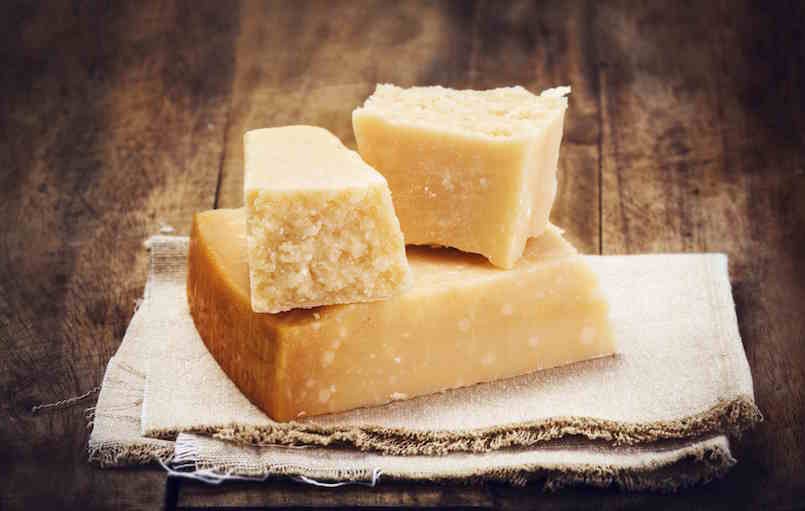Nutrition
The Secret Perfect Fuel for Outdoorsmen

Image: Standard Market Chicago
Granola and trail mix (or GORP — Good Ole Raisins And Peanuts) are both staples for hikers and backpackers everywhere. They’re usually full of relatively health grains which will supply the energy you need to keep going all day, which is why they’ve been in backpacks for decades. There is another food that’s perfect for the trail, and chances are you’ve been skipping it even though you don’t have to.
Whether you’re going low carb or just want to change your routine a bit, hard cheeses make great snacks for the trail. Surprised? Surely keeping dairy stowed away for hours at a time can’t be healthy, but the reality is that hard cheeses are actually quite good at holding around room temperature for several hours. Once you get over the mental hurdle of packing dairy for a hot and sweaty trek, you’ll quickly come to appreciate everything cheese can bring to your trailside eating.
First, which cheeses are okay to pack for your hike? The broad answer is any hard cheese. The more specific answer is that you can pack any cheeses that lack sufficient moisture for bacteria to easily reproduce. Two common cheeses that best fit this description would be real Parmesan (Parmigiano-Reggiano) or Romano, but you could also pack cheddar, Swiss, Provolone, Gouda or Gruyere. Some blue cheeses might fall under the hard cheese umbrella, like a Stilton, which is similar to a cheddar with veins of blue running through it. A pretty quick way to tell which cheeses are suited for our habits is to look whether or not it is aged; the longer a cheese is aged the better it is for a day outside of the fridge.
Now that you know that you can pack cheese for your hike, why would you want to?
Personally, my favorite reason for eating more cheese in general is that it keeps you feeling full. As most of you probably know, cheese is a great vegetarian source of both protein and healthy fats, two things we need in our diet to feel fully satiated. Low carb diets work in part because people who eat a lot of protein and fat don’t feel as hungry as people who eat mostly carbohydrates. This make sense, because the body takes longer to digest both proteins and fats than it does carbs. That last point also means that cheese will provide a more sustained supply of energy. No sugar/carb spikes.
When you’re exercising that fat is going to be the first fuel source your body turns to for energy, and the protein is going to be there for recovery when your muscles need repairing at the end of the day. But cheeses aren’t just protein and fat. They’re also full of calcium, phosphorus, zinc, vitamin A and vitamin B12. Calcium especially is a very important nutrient and essential to bone health. Since the typical American diet is ridiculously low in calcium, eating cheese on your hikes is a great way to make sure you keep your bones strong for all your outdoor activities. The other nutrients listed will help aid everything from eyesight (vitamin A) to immune health (zinc).
One of the unsung-hero nutrients you get from cheese is vitamin B12, which is vital for the health of our blood and nerve cells. A person deficient in B12 will likely suffer from a specific type of anemia which reduces the amount of oxygen their blood can carry to their muscles and organs. For anyone who loves to exercise, this can be very problematic, greatly reducing your stamina while on the trail.
It’s for these reasons that we love to choose cheese as one of our go-to trail snacks and meals. It’s hearty, satiating and healthy. You’ll get loads of protein, healthy fats, as well as nutrients perfect for fueling our outdoor addictions. What more can we ask for?


0 comments